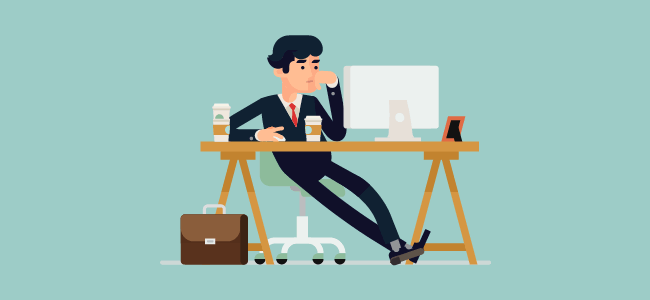Sometimes I feel like the web has given us all ADHD.
Not too long ago I was a slave to the web. At work and at home I’d spend countless hours surfing blogs and reading articles that had nothing to do with the tasks at hand, nor did they really do anything for me in terms of expanding my intellect or teaching me useful tips. I just clicked on cat picture after cat picture or watched amusing videos as they were posted on my favorite YouTube channels. An article about a celebrity’s personal life lead to a series of Wikipedia pages that—hours later—left me wondering how I got there in the first place.
Needless to say, I literally wasted days upon days of time that could have been put to use. It was so frustrating.

What happened to me is an HR manager’s nightmare at any respectable company, whether they’re an established corporation or a brand new startup. It should be an equally scary scenario for freelancers who need all the time they can get to execute projects. Wasting vast amounts of time on the web isn’t good for anyone except the web marketers making money from your mistakes.
The web is a powerful tool, but it’s an even stronger source of distraction. There’s nothing wrong with checking your Facebook page now and then, but you should be worried when you’re racking up idle web surfing time in terms of hours on any given day. If you sense that there’s a problem with your surfing habits, then perhaps it’s time to assess the situation and take control of your behavior.
With that in mind, I have some tips that might guide those who have ventured into the land of endless online distractions. It’s a hard habit to break, but it can be done.
Check Websites & Online Tools Twice a Day
Part of the core problem with online distractions involves the impulse to check back at our favorite sites and on social media services for updates multiple times a day. This is a consequence of the 24/7 content generation that’s become the norm on the web. Getting new info once a day is not nearly enough for us: we want to read several new articles or posts daily; we check how a person’s day has progressed through Twitter or Facebook; and we check media sources again and again for updates on breaking news.
My rule of thumb is simple. If you have a problem checking your email every five minutes, or your Twitter, or your favorite blog, you have to limit yourself. I say that two check-ins—one in the morning and one in the late afternoon—is sufficient to satisfy this urge.
When you check something in the morning, you can see everything that went on the night before; when you check in the late afternoon, you’ll see if anything new popped up during the day. You can treat these two check-ins like rewards: once you get enough work done, you take check something on the web for the first or second time.
When You’re Really Struggling, Go Unplugged
Some of you might not have the restraint to limit yourselves to two visits a day on your favorite site. No matter how hard you try, you keep wandering to the daily news sites or to general interest blogs to scratch that itch. In that case, you might just have to unplug your connection.
I know it sounds extreme, but hear me out. You don’t have to literally disconnect your router or anything (though you might want to do it, depending on the severity of your dependence); you can simply shut off the connection from your computer.
Most of our jobs require the web in some capacity, so it’s unrealistic to completely limit yourself from it. Limiting your access to the web should make you work harder; you have nothing else to do but work without it. You might even find that shutting off the web at strategic intervals does wonders for your work ethic.
Web Surfing as a Reward
Let’s talk about work incentives. Everyone needs a little incentive—no matter how small or insignificant it might be—to help them finish their work. It’s a practice applicable to all professions. Finishing a financial report might look a little more appealing to an accountant if they plan to give themselves the reward of a nice cup of coffee or an early lunch break afterwards. A college student who stays up all night studying for an important exam might reward themselves with a long nap after they’re done.
If you have problems with surfing the web, why not make it your reward for a hard day’s work? You might get your work done better if you know you’re working for an incentive, and what better reward can you grant yourself than some guilt-free idle web surfing time?
How do you combat online distractions on your computer? I want to know!
Related Topics
Top